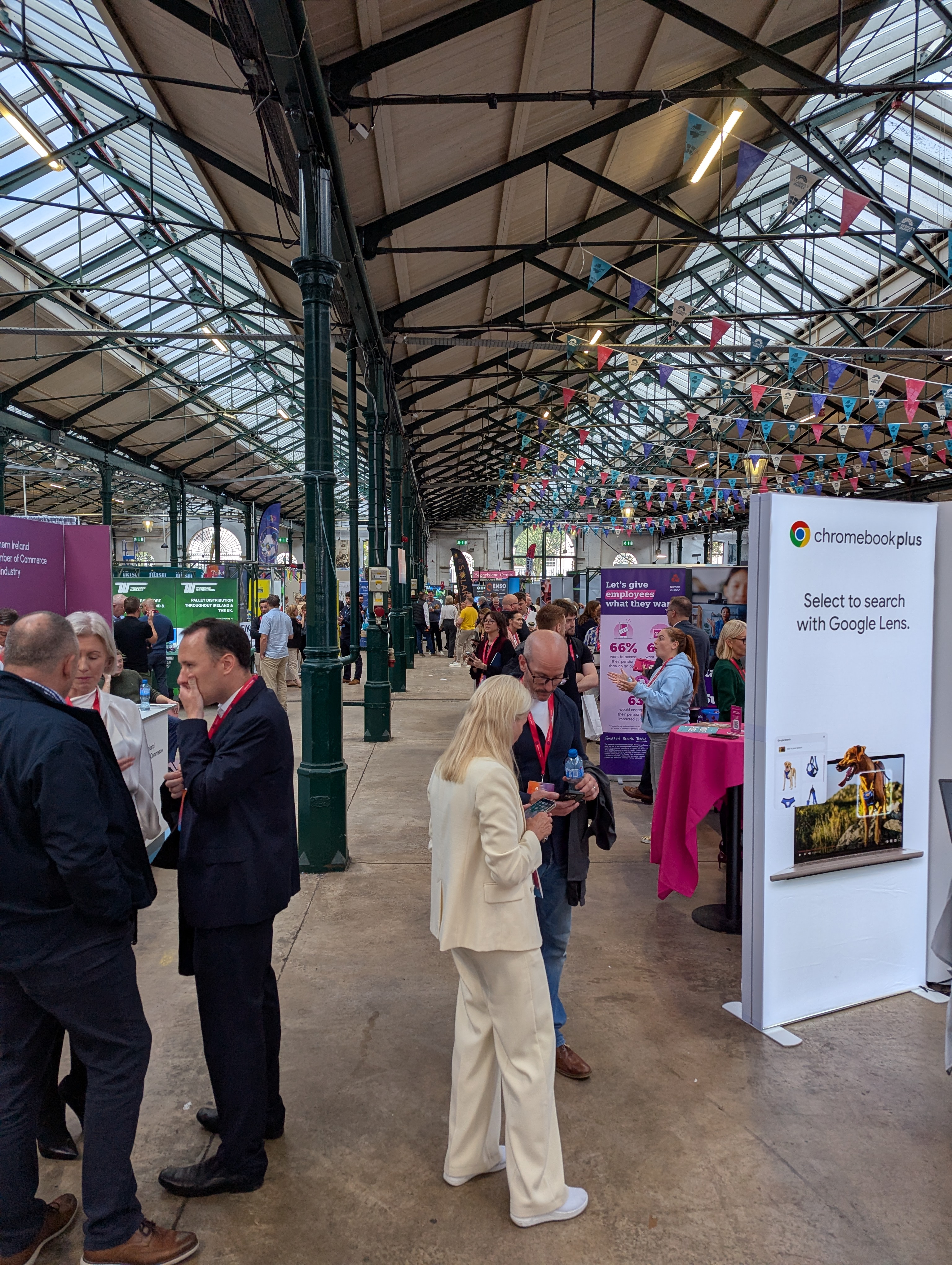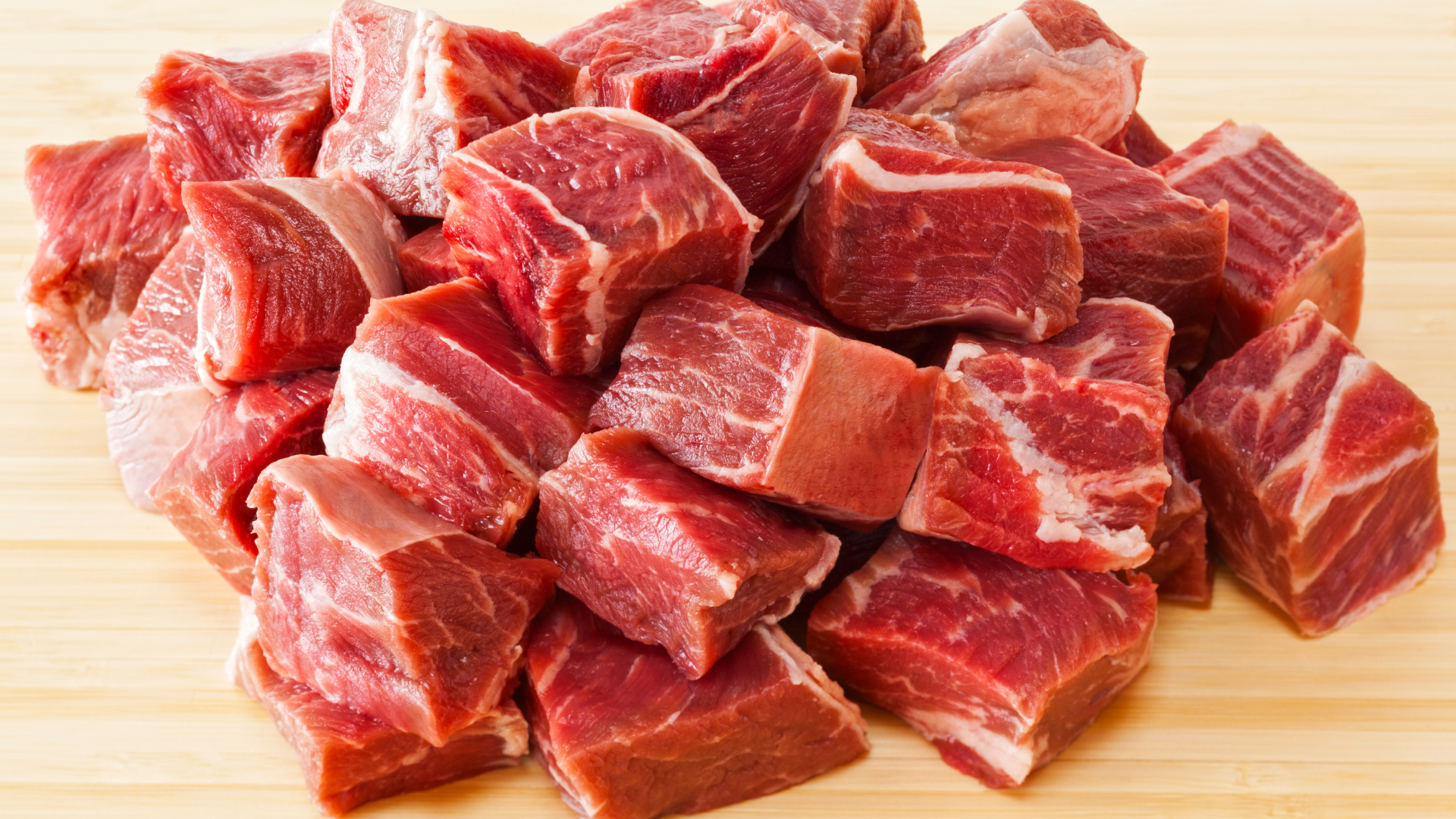As part of our series on allergen awareness, we sat down with the CEO of allergen-free brand Creative Nature to talk airline snacks, Natasha’s Law and being consigned to the “allergy table”.
Julianne Ponan MBE is a woman on a mission – to change and improve the lives of those living with allergies. For the work she has done in this area she was named in Forbes’ 30 under 30 in 2019 and is currently the CEO of allergen-free brand Creative Nature.
Ponan suffers from anaphylaxis to more than 14 allergens, which means tree nuts, peanuts, sesame and chickpeas are all off the table. So, growing up she was put on “allergy tables” and even asked to sign waivers in restaurants. It gave her the drive to go out and change the narrative around allergens.
She explains, “I started Creative Nature from my kitchen table with a key mission to make lives easier for people with allergies. For me, growing up I constantly felt like I was missing out, from food on the go to birthday cake at parties.” She didn’t want that for future generations. So, she created a business that prides itself on making top 14 allergen-free food that everyone can enjoy.
"I started Creative Nature from my kitchen table with a key mission to make lives easier for people with allergies"
Over the years things have changed of course. The free from section in supermarkets has expanded. But that has led to further complications. Primarily with the term “free from". “The label has lost its true value to the consumer,” says Ponan, “and many supermarket aisles are packed with products that say ‘may contain’ yet sit in the free from aisle.” ‘May contain’ offers businesses a get out clause, but can leave consumers at risk.
Developing consumer safety strategies
So, what steps should other businesses be taking to keep consumers safe when it comes to allergens? “Businesses that are catering specifically for the allergy consumer should adopt comprehensive allergen management systems. These should include thorough staff training on allergen awareness and cross-contamination prevention, clear and accurate labelling of all ingredients, and regular audits of their supply chain to ensure compliance with allergen control measures.”
She also wants to see clear accessible information applied across the board, which is accessible for all consumers. “I’d like to see GS1UK new QR codes that enable manufacturers and brands to update their information in real time. This would help consumers understand more about the product ingredients and what care is taken for people with allergies.”
There has been some progress in this area. Natasha’s Law - named after Natasha Ednan-Laperouse, who tragically passed away after suffering from a severe allergic reaction in 2016 - mandates that all pre-packaged food for direct sale in the UK includes a full list of ingredients with allergens emphasised. The legislation, which Ponan actively campaigned for, has significantly raised allergen awareness.
Building on food labelling legislation
She believed, “It has prompted the food industry to be more meticulous in their labelling practices, thereby reducing the risk of accidental allergen exposure and increasing consumer confidence in food safety. However, I have found that many establishments have decided instead of taking positive steps they have chosen to exclude people with allergies putting signs up saying ‘If you have allergies we cannot cater’ or putting a caveat on everything.”
"I have found that many establishments have decided instead of taking positive steps they have chosen to exclude people with allergies"
Owen’s Law, which states that restaurants should be forced to publish allergy on their menus, is backed by the UK’s Food Standards Agency but currently not law. It is named for Owen Carey, who suffered an anaphylactic shock and died after eating chicken containing buttermilk, despite telling restaurant staff he was allergic to dairy. He was just 17.
The importance of traceable supply chains
For Ponan a traceable supply chain is crucial for delivering allergen awareness that keeps consumers safe. “At Creative Nature we work with our supplier and check the supply chain while also getting top 14 allergen-free declaration forms. This traceability helps in identifying and controlling potential allergen contamination points, facilitating quick and effective responses to any allergen-related incidents.”
She believes the process also bolsters consumer trust in her brand. “It means they can be assured of the safety and integrity of the products they consume. At Creative Nature we have also chosen to implement QR codes on our packaging which detail information about the products. Also, we intend to go that step further and have batch testing on the QR code.”
Targeting problem areas
For Ponan, the next step is standardisation and stricter regulations across the industry to ensure consistent allergen control practices. One of the biggest issues for her is airline catering. “When you have a food allergy that is life threatening it can be very dangerous as well as causing anxiety - I face that every time I board a plane.”
She is currently working with and supplying Iberia, Virgin and KLM airlines, so that they can offer more inclusive solutions to anyone allergic to the top 14 allergens.
Another bugbear is the confusion around the usage of “vegan” in the allergen space. At the moment, some vegan products are labelled as free from even though they say ‘may contain milk or egg’” - issues then arise when items actually contain high levels of both ingredients.
“The term vegan needs to be re-evaluated" she says, “and free from needs to be more protected as consumers and staff in restaurants have become very confused. This means mistakes can and have happened. We pride Creative Nature in being truly top 14 allergen free while being delicious without doubt.”
“The term vegan needs to be re-evaluated" she says, “and free from needs to be more protected as consumers and staff in restaurants have become very confused"
Building a safer space for allergy sufferers
She has a hitlist of issues she wants the industry to address to make the UK a safer space for those with allergies. These cover mandatory allergen awareness training, digital adoption, labelling and outdated practices on airlines.
“At the moment due to the IATA (International Air Transport Association) codes there is no way to order, for example, a child’s meal who has multiple allergies. The system is quite archaic and change is needed. Additionally, there needs to be development and adoption of advanced technologies for better traceability, as real-time monitoring of allergens in the supply chain would greatly improve food safety.”
And ultimately that is what she is striving for - a safer food supply chain that keeps everyone safe not just those who are allergy free.
Allergen awareness and control are big topics in the food sector. If you'd like to read more on the subject check out our interview with food safety attorney and food safety risk specialist Melanie Neumann here.
Want to dig deeper into the upcoming regulations shaping the food industry's traceability journey? Then check out our new report on the subject. Download your copy to get all the insights.
.jpg)
Greer McNally
Greer has over 15 years’ experience writing about trends in the food and retail sectors. She lives in a little village by the sea in Northern Ireland and loves creating content that informs how people think about the food industry. A recent career highlight was interviewing the legend that is Dr Temple Grandin.
Stay up to date
Stay up to date
Browse Posts
- February 2026
- January 2026
- December 2025
- November 2025
- October 2025
- September 2025
- August 2025
- July 2025
- June 2025
- May 2025
- April 2025
- March 2025
- February 2025
- January 2025
- December 2024
- November 2024
- October 2024
- September 2024
- August 2024
- July 2024
- June 2024
- May 2024
- April 2024
- March 2024
- February 2024
- January 2024
- December 2023
- November 2023
- October 2023
- September 2023
- August 2023
- July 2023
- June 2023
- May 2023
- April 2023
- March 2023
- December 2022
- November 2022
- October 2022
- September 2022
- August 2022
- July 2022
- June 2022
- May 2022
- April 2022
- March 2022
- February 2022
- January 2022
- December 2021
/Blog%20Headers/CreativeNature.jpg)

/Blog%20Headers/shutterstock_1927957907%20(1).jpg)
/Blog%20Headers/shutterstock_1845178195%20(2).jpg)
/Blog%20Headers/shutterstock_2133827717%20(1).jpg)
/Blog%20Headers/shutterstock_2473376713.jpg)
/Blog%20Headers/shutterstock_2474442759.jpg)





/Blog%20Headers/shutterstock_2468439127.jpg)
/Blog%20Headers/Allergens%20APAC%20blog.jpg)
/Blog%20Headers/shutterstock_2473679695%20(1).jpg)
/Blog%20Headers/shutterstock_1705229173.jpg)
/Blog%20Headers/shutterstock_1550290670.jpg)
/Blog%20Headers/shutterstock_2499242937.jpg)
/Blog%20Headers/shutterstock_2247276303.jpg)
/Blog%20Headers/Allergen%20Management-3%20key%20ways.jpg)
/Blog%20Headers/Bullwhip%20effect%20supply%20chain-1.png)
/Blog%20Headers/EUDR%202025%20Update%20Blog%20header.jpg)